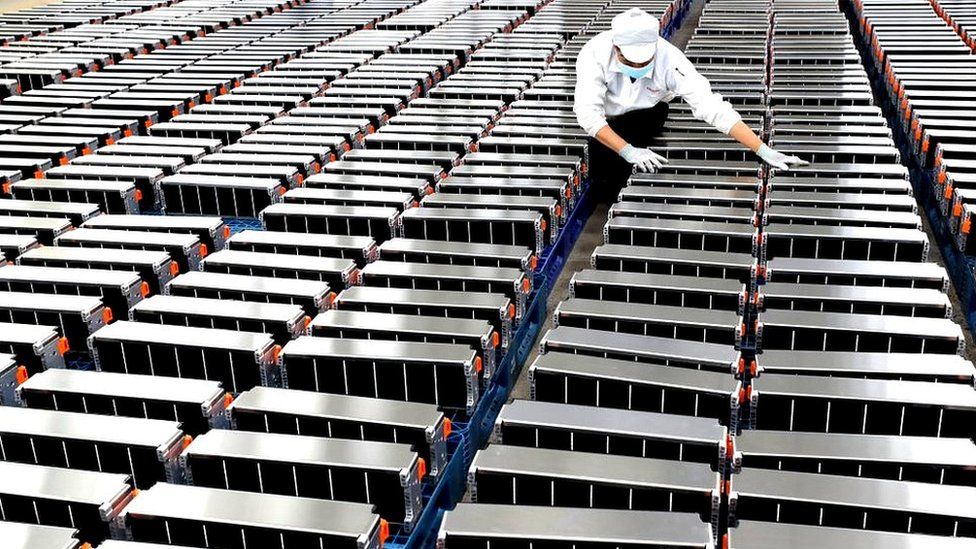Farasis Energy to Power Mahindra’s First Electric SUV, XUV400, in India
Introduction:
Chinese power battery company Farasis Energy is set to provide power batteries for Mahindra, one of India’s leading automotive manufacturers, for their first all-electric SUV, the XUV400. According to insider sources, the two companies signed a designated partnership agreement earlier this year. Under this agreement, Farasis Energy will supply soft-pack power batteries for the XUV400 in two versions with capacities of 34.5 kWh and 39.4 kWh. These batteries boast a single-cell energy density of 275 Wh/kg, effectively meeting the power requirements for two XUV400 models with ranges of 375 km and 456 km, respectively. Production is expected to commence in the first quarter of the next year with a supply period of three years.
Farasis Energy’s Preparations for the Indian Market:
Farasis Energy has recently obtained several certifications in the Indian market, including UN38.3 testing, IS16893 P1&P2 testing, UL1642 testing, and BIS certification, in preparation for mass production next year. This collaboration with Mahindra marks another significant breakthrough for Farasis Energy in overseas markets.
Mahindra’s Prominence in India:
Mahindra is India’s largest SUV manufacturer, commanding approximately half of the Indian SUV market share. Thanks to increased consumer demand for large SUV models in India, Mahindra has also achieved record-breaking passenger vehicle sales in the country. As of May 1, 2023, Mahindra had received over 292,000 public orders. In the first quarter of this year, Mahindra’s standalone post-tax profit in the automotive business increased by 22% compared to the same period last year, reaching INR 15.49 billion (approximately $206 million USD).
Mahindra is actively advancing its electric vehicle (EV) business, with multiple rounds of financing. Reportedly, Mahindra’s electric vehicle business received a $145 million USD investment from Temasek, valuing it at a staggering INR 805.8 billion (approximately $10.8 billion USD).
India’s Growing Electric Vehicle Market:
While India’s electric vehicle market is currently small in scale, it offers significant growth potential. The Indian government plans to increase the market share of electric vehicles from the current less than 2% to 30% by 2030. Anish Shah, Managing Director and CEO of Mahindra Group, has stated that by 2027, one in four SUVs sold by Mahindra will be electric.
The XUV400, as Mahindra’s first electric SUV, carries high expectations. Within five days of its launch, it received over 10,000 orders, demonstrating strong market demand.
Additionally, in the Indian electric motorcycle and two-wheeler market, which is highly favored by consumers, Farasis Energy has found new growth opportunities in India. Data shows that in 2022, India registered one million electric vehicles (including cars and motorcycles), tripling the number from 2021, with the majority being electric motorcycles. Currently, electric vehicles account for only about 2% of India’s total vehicle sales.
The Indian government has plans to increase the penetration of electric vehicles over the next decade, with a particular focus on boosting electric motorcycle sales. Therefore, the market potential for electric motorcycles in India is as significant as that for passenger cars.
Farasis Energy’s Expertise and Global Reach:
Farasis Energy has been the exclusive supplier of power batteries to the renowned electric motorcycle company Zero for 13 years. With over a decade of experience in the electric motorcycle and two-wheeler sectors, Farasis Energy has provided battery solutions for many well-known electric motorcycle and two-wheeler brands, including battery cells, modules, and packs.
Farasis Energy has also developed its proprietary Battery Management System (BMS) specifically for electric motorcycles and has received positive feedback from the market. Currently, Farasis Energy is collaborating with top international motorcycle brands to develop batteries for racing motorcycles, showcasing its capability to rapidly adapt to the Indian and global electric motorcycle and two-wheeler markets.
Farasis Energy has established research and development centers in China, the United States, Germany, and Turkey. Production facilities are located in various regions of China, including Ganzhou, Zhenjiang, Yunnan, and Guangzhou. Furthermore, Farasis Energy has formed a joint venture company, SIRO, with the Turkish automaker TOGG, and is constructing a production base in Turkey.
In addition to its long-standing focus on ternary soft-pack batteries, Farasis Energy is also making strides in other battery technologies, including lithium iron phosphate (LiFePO4), sodium-ion, and energy storage batteries. Its products are widely used in various transportation scenarios, including electric passenger vehicles, electric commercial vehicles, electric motorcycles, and electric aircraft.
In the 2022 global power battery installation ranking, Farasis Energy achieved a position in the top 10 with 7.4 GWh of installations, a remarkable year-on-year growth rate of 215.1%. According to GGII data, in the January-to-June period of this year, Farasis Energy ranked ninth in global power battery installations with 4.84 GWh installed.
Conclusion:
Farasis Energy’s partnership with Mahindra to supply power batteries for the XUV400 electric SUV represents a significant step in the company’s expansion into overseas markets. This collaboration aligns with Mahindra’s strategy to tap into India’s growing electric vehicle market, where the demand for electric SUVs is on the rise, and government policies are incentivizing the adoption of electric mobility. Farasis Energy’s established expertise in battery technology and global reach position it to play a pivotal role in India’s electric vehicle ecosystem, both in the passenger vehicle and two-wheeler segments. As the Indian EV market continues to evolve and expand, Farasis Energy is well-prepared to contribute to its growth.


